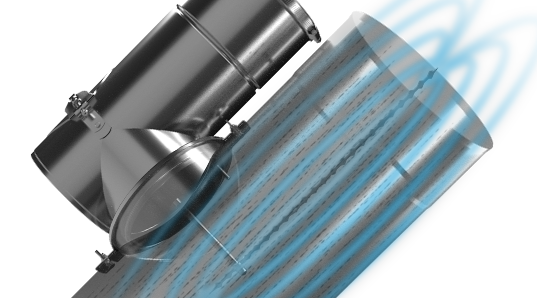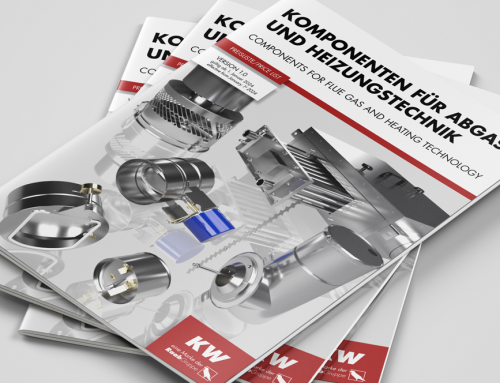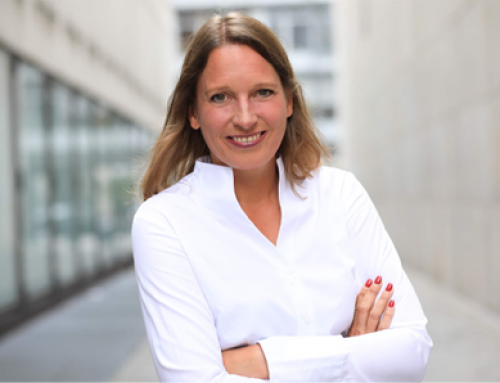Low emissions – diverse solutions from the Raab Group
Maisach, 10 October 2023 – The Raab Group recently took part in Waldecker PR’s specialist symposium “The energy future already exists today”. In his lecture, Dipl.-Ing. Michael Erlhof, seminar manager at Raab, presented the possibilities of reducing emissions in the commercial and private sector. He covered everything from the requirements for single-room fireplaces to solutions for large industrial projects.
Health is a high good and is also in focus in connection with wood-burning stoves and heaters. Therefore, the permitted emission of harmful particulate matter was successively reduced via the 1st BImSchV. In addition, there are some regional regulations on the operation of fireplaces and tiled stoves. Erlhof pointed out that there is still a lot of catching up to do with regard to the obligation to replace fireplaces: About 1.7 million replacements are due by the end of 2024, for about 1 million the date has already expired.
Furthermore, it is important to keep an eye on the WHO recommendation for the PM-2.5 limit value – it has been lowered from 5 to 2.5 micrograms. The EU directives have not yet transposed the value set in 2022. Should this happen in the foreseeable future and the BImSchV also be amended, this will increase the need for sensible solutions to reduce emissions. At this point, the Raab Group offers a whole range of possibilities.
Variants of the fine dust separator
In existing buildings, highly effective fine dust particle separators can be installed, which enable a reduction in fine dust emissions of up to 90 % for fireplaces up to approx. 100 kW. Different models are available, which can be installed in the appropriate places of the exhaust system. For chimneys with and without an inner pipe, for example, the Airjekt 1 Ceramic is ideal. Other models are available for the chimney mouth, the outdoor area (double-walled stainless steel flue systems) and the indoor area. Only the Airjekt 1 Outdoor Top or the Airjekt 1 Basic should be mentioned here.
Complementary components and accessories
In his presentation, Michael Erlhof introduced additional components for stable combustion that also have a positive effect on pollutant emissions. These include chimney fans and draught limiters that stabilise the chimney draught. The AirSpeedy chimney fan, for example, is particularly suitable for detached houses and apartment buildings or single-room fireplaces. Draught limiters ensure that heat energy is prevented from being dissipated too quickly. This is achieved by limiting the negative pressure at the fireplace. In this way, the fireplaces work more efficiently – with very low emissions.
The Raab Group also supplies important accessories with regard to other exhaust technology and supplementary products. One example from the innovation forge is the telescopic bracing set for double-walled stainless steel flue systems. Up to 5.5 metres of chimney height above the last static wall fastening or rafter support are thus achievable for stainless steel chimneys for single fireplaces. Also worthy of mention are Raab’s lightweight chimneys, which are considered problem solvers in new construction and renovation. In addition to simple assembly, they score points with low weight and DiBT approval in terms of fire protection.
Industrial fans and heat recovery for efficient production processes
With the help of industrial fans such as the Linejekt, a constant exhaust air volume adapted to the respective situation can be generated to ensure consistent process quality. Various model sizes are available with up to 17,400 m³/h delivery volume and diameters from DN 250 mm to 800 mm.
Last but not least, the Raab Group also scores points in heat recovery in the commercial and industrial sector. With the Thermojekt heat exchangers of their NET brand, energy costs and emissions can be significantly reduced by systematically recovering heat from exhaust gases and fume extractors. The heat exchangers have been tried and tested in industry and trade for over 20 years and are manufactured in Germany, like all Raab Group products.
More information on all products and services can be found on the Raab Group website.
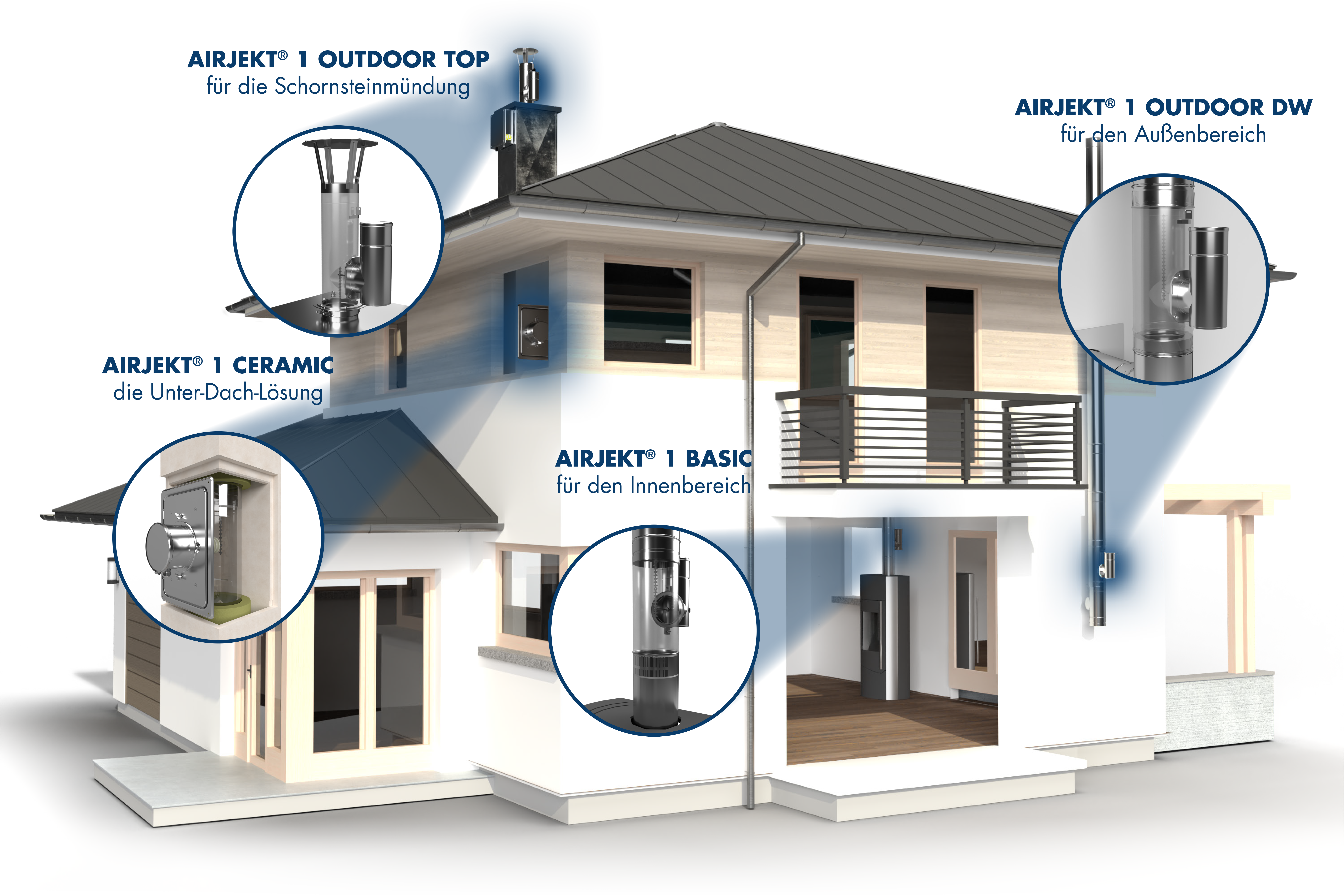
With the Airjekt 1 models, the Raab Group provides particle separator variants for various installation situations.
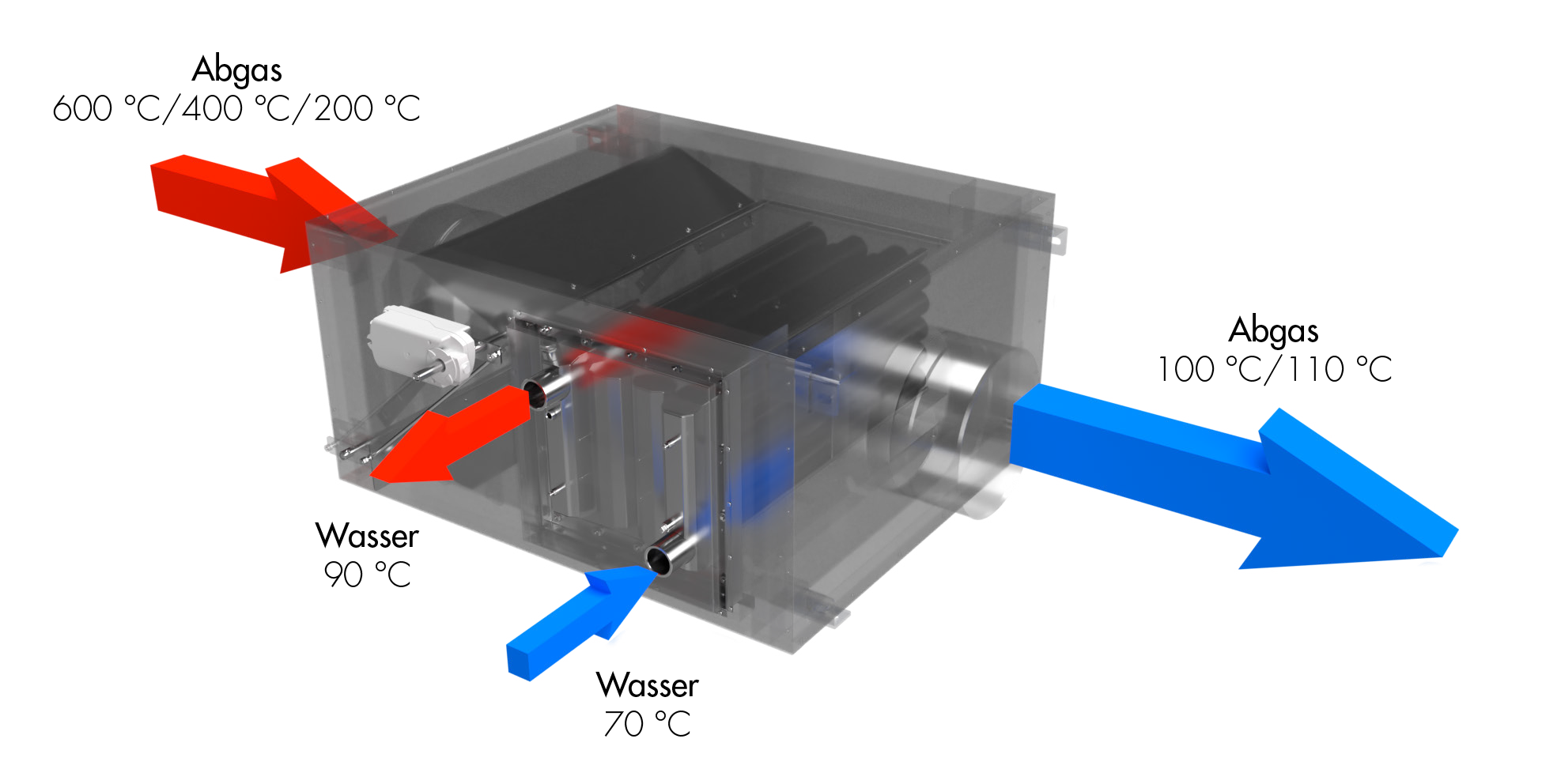
Emission reduction through heat recovery: With a Thermojekt, energy can be extracted from the exhaust gas and used elsewhere.
Image source: Raab Group

